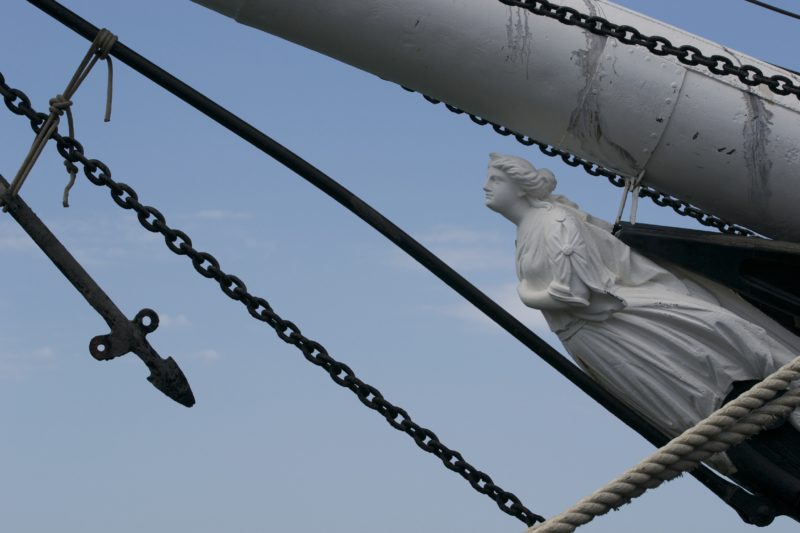
There are two categories of Dutch movies: one kind is populated with a lot of nasty Nazis and the other is swarming with patriotic colonialists sailing the seven seas, their Vermeer-modeling wholesome families enduring their absence. I will report on the latter category, since I had a blast streaming The Admiral. Nothing more comforting than sitting on your sofa, eating salty licorice (a Dutch specialty, an acquired taste) and watching sea battles from hell, in glorious re-enactment and/or animation, between little David Holland and the evil Goliath(s) of Britain, Germany and France. David is winning one battle after another against the giants, with the help of Michiel de Ruyter, sailor supreme.
Admiral de Ruyter is a celebrated historical figure in Holland, taught about in every child’s history class, presented in museums, biographies about him filling whole library shelves. He lived in interesting times, the 17th century, at the brink of civil war between the Republicans and the Orangists, in a small country challenged by hostile external forces trying to cut a bigger slice of the mercantile pie called colonies and West Indies trade. The Republicans re-structured and re-financed his navy, his naval successes supporting their power position in turn, up to a point. Whether he was a political figure or just interested in patriotic duty for his fatherland remains in dispute. Fact is he was both a brilliant strategist and a tactician when it came to warfare and extremely successful in luring much larger naval powers into traps.



When the movie opened in Holland in 2015 there was loud and vigorous protest from the left, because de Ruyter’s reconquest of slave stations from the West Indies Company in West Africa – not even mentioned in the movie – was seen as evidence for the man’s ardent pro-slavery ideology – and thus his celebration in the movie condemned.

British naval history buffs have other problems with the film: listing each and every detail gone wrong in the historical enactment, pages of them, and speculating that the film had no English subtitles (it does now) because they were the bad guys. https://jddavies.com/2015/05/11/the-film-and-the-facts-about-the-movie-michiel-de-ruyter/

I’m sure life was hard on these ships, the conditions – starvation, scurvy, diseases, the danger, the uncertainty. Never mind war. But at least men had a choice, they could stay on land or go on board – women didn’t. How could you even communicate after two years’s absence, returning from Batavia, whole worlds in your head unimaginable to those left at home? I’d ask him that.
This is a portrait of Michiel de Ruyter by Ferdinand Bol from the Rijksmuseum.
Here is the trailer:https://www.youtube.com/watch?v=j21t1i_SiKI
